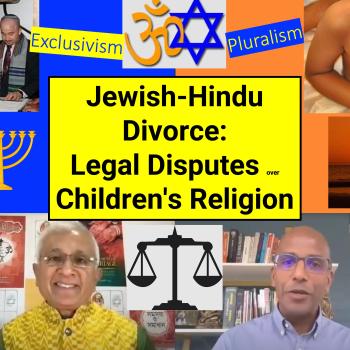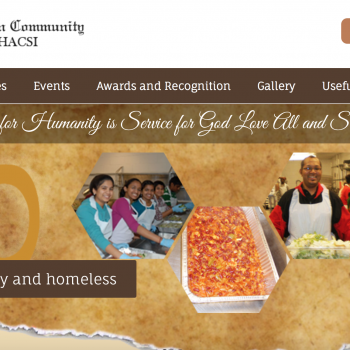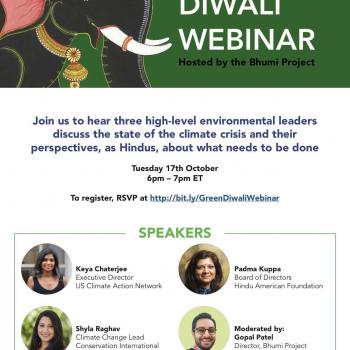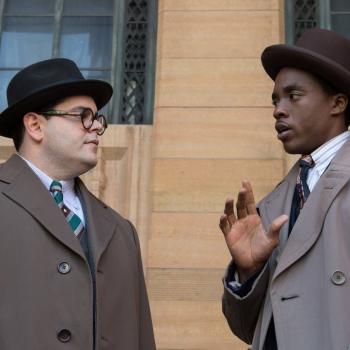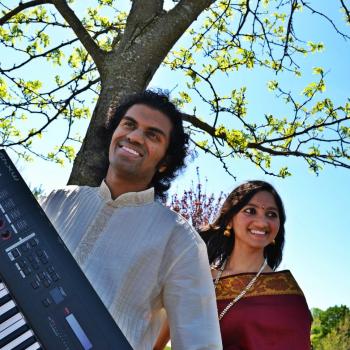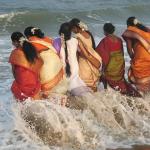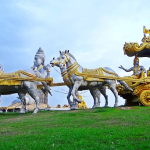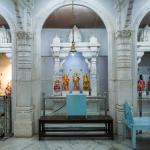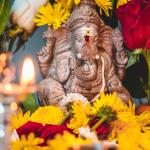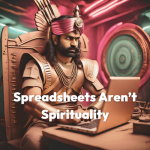In the upcoming episode of The Story of God, Morgan Freeman attempts to discover who God is – and how he/she or they have evolved over history, Leading off with questions such as “What are all the ways that people connect to God?” And “Is god fundamentally different to different faiths?” – Freeman heads to my spiritual homeland, India, the cradle of not only Hinduism, but several other faiths as well. I headed to one of my first blog posts for Patheos, where I was part of a community of bloggers challenged to answer, in a 100 words or less, Who or What is God?:
Ekam Satya Vipraha Bahuda Vadanti (Rg Veda). The Truth is one, the wise call it by many names. This is both Nirguna Brahman, an impersonal, formless God, beyond conception, beyond reasoning, beyond thought; and Saguna Brahman, a personal God with good qualities and of many forms. God is finding the balance, to live within this contradiction, to follow one’s Dharma, to open one’s heart and love selflessly, while being open to the suffering that comes with it, constantly seeking the light of knowledge from the darkness of ignorance, knowing that I am both the same as everyone else and unique.
That Freeman goes specifically to the city of Varanasi, also known as Banaras or Kasi, to understand the Hindu concept of God is not surprising. It is the most visited pilgrimage destination in all of India – and his desire to understand whether there is a universal concept of God that all people share starts with navigating the practices of one of the most ancient living traditions in the world. He is assisted in two different ways by two Hindu women from two countries: on screen and in India, by Binda Paranjape, a Indian history professor at Banaras Hindu University, and on the editorial board and in America, by Suhag Shukla, the Executive Director of the Hindu American Foundation (Full disclosure: I sit on the board of the Foundation). He concludes his visit seemingly inspired by the way “believers have a spiritual fingerprint unique to each person,” and contrasts the monotheism of the West to the pluralism that is foundational to Hinduism: “on the surface, many gods…underneath the surface, a single divine energy.”
It is this pluralism that Diana Eck, professor of comparative religions and India studies at Harvard, and the Director of the Pluralism Project, wrote about in Banaras, City of Light, decades ago:
“…the compelling vision of the city as a thirtha – a sacred crossing place linking this world to the Transcendant…this great north Indian center of Shiva worship has had more than 3000 years of continuous habitation. Few standing buildings are older than the 16th century, however, as Muslim armies raiding from the 11th century onward destroyed the ancient Hindu temples and erected mosques on their foundations….this juxtaposition of mosque and temple right in the heart of the city, has been accommodated by Banarasis, both Hindu and Muslim, for over three centuries with far more peace than tension.”
Eck alludes to how one of the key temples in Varanasi, the Kasi Viswanath temple, is also home to the Gyanvapi mosque. In the 1600s, the Muslim ruler Aurangzeb destroyed the Hindu temple, and built a mosque – and in the 1700s, when Maharani Ahilya Bai Holkar of Indore, a Hindu, came to power, she rebuilt the Hindu temple – but without destroying this mosque. It is this ancient, inclusive and inherent pluralism of Hinduism that gives me the answer to “Who is God?” – an idea, a practice, a place of peace, that allows for houses of worship from two different religions to live side by side, for several hundred years.
The timelessness of the Hindu understanding of God, with its inclusive, pluralistic understanding is clearly in contrast to a binary, exclusive one that more easily gives rise to conflict and exclusion. I can worship Vishnu as Rama, Krishna or another avatar, or God in yet another form altogether – or I can meditate on a form that is “neither male nor female, that is faceless and nameless,” as described by Prof. Paranjape. As HAF Executive Council member Fred Stella, an interfaith leader in Grand Rapids, points out, “Some religious traditions find their strength in uniformity and conformity. Hinduism, I believe, draws from its inherent pluralism that simultaneously acknowledges the seemingly divergent doctrines of sharing an underlying cosmic unity yet expressing our individual lives in wild variety. This not only allows for freedom of belief on the nature of God, it demands it.”
The National Geographic mini series The Story of God with Morgan Freeman debuted April 3rd on the Nat Geo channel, and will take viewers on a trip around the world to explore different cultures and religions on the ultimate quest to uncover the meaning of life, God and all the questions in between. On April 17, in Part 3, he seeks to answer Who is God?
For more information be sure to check out the following links where you can learn more information regarding the series:
Website: http://channel.nationalgeographic.com/the-story-of-god-with-morgan-freeman/
What other Patheos Bloggers are saying about it: http://www.patheos.com/Topics/The-Story-of-God



